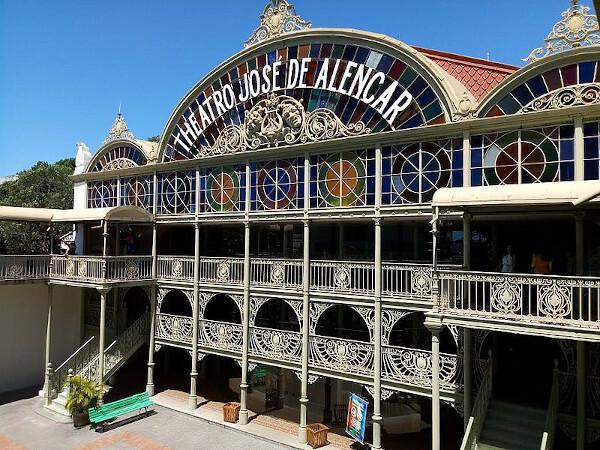Luís Carlos Martins Pena was born on November 5, 1815 in Rio de Janeiro (RJ). His father was a judge and didn't have many possessions. He was orphaned very early, with just one year, with his father and at the age of ten, with his mother. His stepfather, the soldier, Antônio Maria da Silva Torres, left him under guardianship, after the death of his wife in 1825 during the childbirth of his daughter.
Under the guidance of tutors, he entered a commercial career and completed in 1835, at the age of twenty, the course in Commerce. He also studied literature, theater, drawing, music, architecture, history, in addition to studying other languages. The latter was responsible for the author's entry into the diplomatic career, which took him to London. On the trip back to Brazil, the author suffered complications from tuberculosis in Lisbon and died on 7 December 1848 in Lisbon (Portugal).
Martins Pena is considered the consolidator of theater in Brazil with his costume comedies that are still performed today.
The first performance of a play by the author was in October 1838, the play was “The judge of peace in the countryside”, at Teatro São Pedro.
While he was emerging as a writer of plays, he held several positions at the Ministry of Foreign Affairs, including as a member of the Legation of Brazil in London (England).
In addition to being the founder of the comedy of manners in Brazil, he wrote other genres such as farces and dramas and contributed to Jornal do Commercio as a theater critic.
Do not stop now... There's more after the advertising ;)
His work is from the period before Romanticism, but it is considered a romantic theater. His pieces played with customs at the time of the king, with popular characters, as if taken from the streets of Rio de Janeiro and placed on paper: rogues, young women eager to marry, judges, foreigners, pompous young men, single old women, civil servants, bailiffs, smugglers, etc. The social scope and plot chosen by Martins Pena also reflected those of the time: weddings, rural parties, city parties, inheritance decisions, payment of dowries, and so on.
Martins Pena, of course, offered an identity to Brazilian theater, giving it the same historical stamp, as it portrayed Brazilian society in the first half of the 19th century.
Works: Um Sertanejo at the Court (1833-37), The Justice of the Peace of the Roça (1842), The Judas on Saturday of Hallelujah (1846), The Gypsy (1845), As Casadas Solteiras (1845), O Novice (1845), O Namorador or A Noite de São João (1845), O Caixeiro da Taverna (1845), Os bailiffs (1845), The Jealousy of a Pedestrian or The Terrible Captain of the Mato (1846), Os Irmãos das Almas (1846), The Dilettante (1846), Who Marries, Wants House (1847).
By Sabrina Vilarinho
Graduated in Letters


